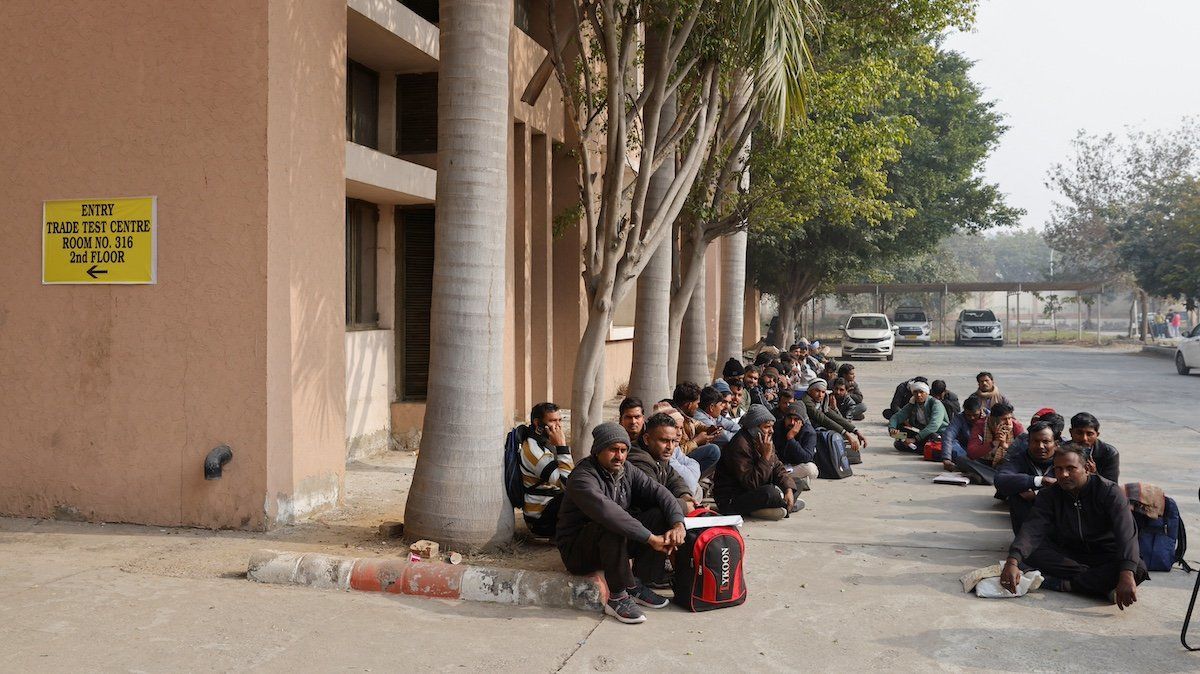As an Israeli ban on Palestinian laborers begins to tax its own economy, foreigners are looking to fill the void.
In the days after October 7th, Israel closed its border with the occupied West Bank almost entirely, shutting out the roughly 150,000 Palestinian workers who previously crossed into Israel regularly for jobs in agriculture, construction, and other sectors.
Now thousands of miles away, Indian workers are eagerly looking to pick up that work. On Thursday, recruitment centers in India were thronged with people hoping to get jobs in Israel, which has launched a program to bring in as many as 70,000 workers from India, China, and other countries.
Why go work in a country at war? India itself is facing high unemployment. For many people, the promise of steady work with higher salaries (up to about $1,600 a month) – plus accommodation and medical benefits — is an attractive prospect.
Meanwhile, the West Bank suffers. It’s estimated that, overall, 276,000 jobs in the West Bank – 32% of all employment – have been lost since the Gaza war began. There are concerns this could contribute to further violence in the West Bank, where hundreds of Palestinians have been killed by the Israeli military and settlers since Oct. 7.
Will those jobs come back? It’s unclear. But any move to permanently freeze Palestinian labor out of Israel could make life drastically more intolerable in the West Bank, which depends hugely on the Israeli labor market.
